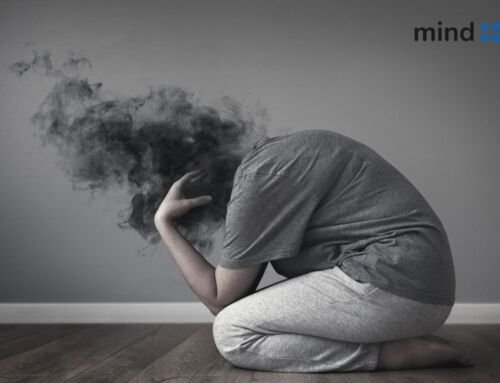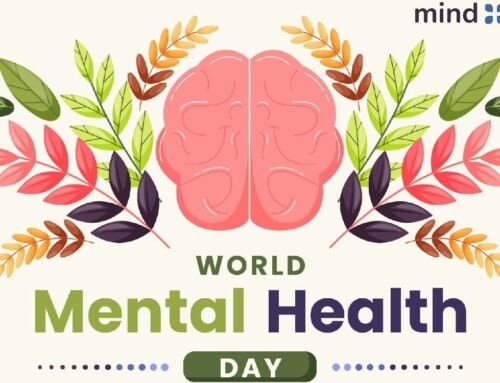How People See The World Who Is Suffering From OCD
By Saima Banoo, Clinical Psychologist
Obsessive-compulsive disorder or OCD is a long-lasting anxiety disorder characterized by irrational, uncontrollable, or recurrent thoughts that are followed by a behavioral reaction. Obsessions are anxious-inducing, recurrent thoughts, desires, or mental images. Compulsions are recurrent actions that an OCD sufferer feels driven to carry out in reaction to an intrusive thought. Also, we discuss the OCD symptoms in our recent blog. You can read that. So, let’s start:
The following are the four categories of OCD behaviors:
- Compulsive acting such as checking, washing one’s hands excessively, locking doors, shifting furniture, staring, praying, or looking for symmetry.
- Reassurance seeking Contacting close friends or family for assurance, performing a Google search.
- Avoiding triggers including conversation, physical contact, and moving around objects.
- Word repetition, mental counting, mental reviewing, ruminating, visualizing, thought suppression, neutralizing (changing an unpleasant thought with a happy one), and rumination is only a few examples of mental compulsions.
It’s not unusual to have a particular morning or evening ritual that you follow almost daily. It’s also not unusual to wish to take pleasure in a clean home or office. However, you might discover that these are symptoms of OCD if you experience anxiety. When something isn’t done precisely or if you have to fight unreasonable or unwelcome impulses to repeat these actions. 
People with OCD generally share the following distortions in perceiving the world around them:
- Overestimating the threat: OCD sufferers frequently exaggerate the likelihood of danger and the repercussions of making mistakes or performing things imperfectly. For instance, a person with OCD might think that there is a very high chance that they will be fired and that any mistake they make at work, no matter how tiny, could result in their termination. To avoid the imagined threat, this form of thinking may lead to obsessive checking or other types of repetitive activity. Although it’s always a possibility, this overestimation of danger is unwarranted in the vast majority of situations.
- Inability to tolerate emotional discomfort: People with OCD frequently think that if they feel strong unpleasant emotions, they will humiliate themselves or lose their minds. It is believed that compulsive behaviors and excessive dependency on affirmation from others frequently emerge as a strategy for avoiding unpleasant feelings.
- OCD patients typically tend to link their thoughts to their behavior through a process known as thought-action fusion. For instance, an OCD sufferer can think that having the unwelcome idea that harming a loved one is morally wrong is comparable to doing so. A person can also assume that such a notion indicates that a person truly wants to hurt his or her loved ones on the inside. Though usually harmless, OCD sufferers categorize such ideas as hazardous and promptly push them away because of their apparent meaning and implications. Unfortunately, suppressing such ideas simply makes them worsen when they eventually resurface.
- The need for assurance: An unreasonable desire for certainty, especially in circumstances when certainty is impossible, is highly typical in OCD sufferers. To prevent feeling anxious, people with a need for certainty may seek out excessive reassurance from family members, therapists, and other people. An avoidance strategy, excessive reassurance-seeking merely serves to feed worry-inducing thoughts. Additionally, it can make family members remove their support as they become too exhausted to offer assurance.
- Increasing Responsibility: When someone has OCD, it is normal for them to place too much blame on themselves for events and to dismiss, ignore, or inflate the role of other possible causes. For instance, an OCD sufferer might believe that leaving for work at the wrong moment will trigger a chain of events that will result in a plane accident. The person with OCD may engage in compulsions to reverse or neutralize this undesirable outcome to keep it from happening, such as repeatedly leaving and entering the residence. Of all, it’s hard to think of a scenario in which arriving at work late would result in an aircraft disaster, and it doesn’t make sense that a compulsion like having to say something again would stop such a scenario from happening.
- Consequences are overestimated: People with OCD frequently think that if they are in danger, they will become overwhelmed and unable to handle the situation, or they will lose their minds. Additionally, they can think that risk always predicts a disastrous future, such as losing everything and finding themselves on the streets. A person with OCD, for instance, could fear that rejection in a relationship with loved ones will inevitably lead to depression and homelessness. This absurd assumption lead OCD sufferers to disregard the possibility that they may be able to manage the circumstance with ease, with the support present from family members, or that the breakup of the relationship may be a chance for a new beginning.
Learn More About OCD Symptoms





